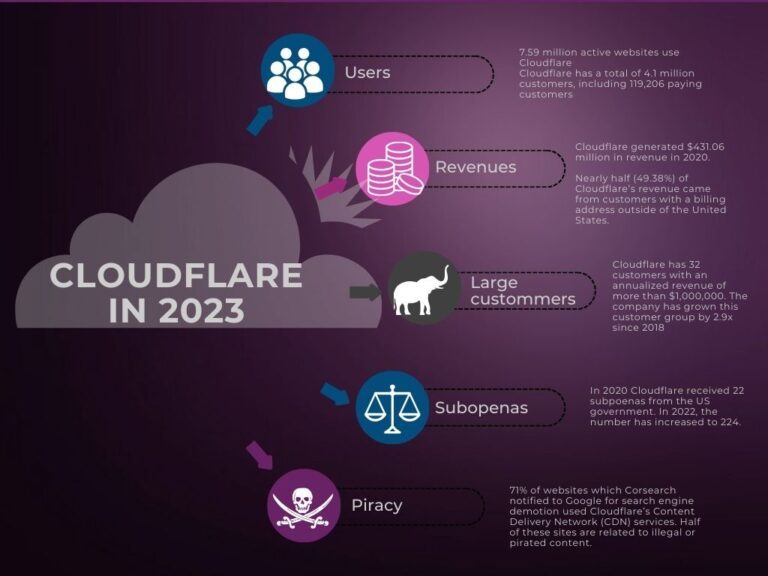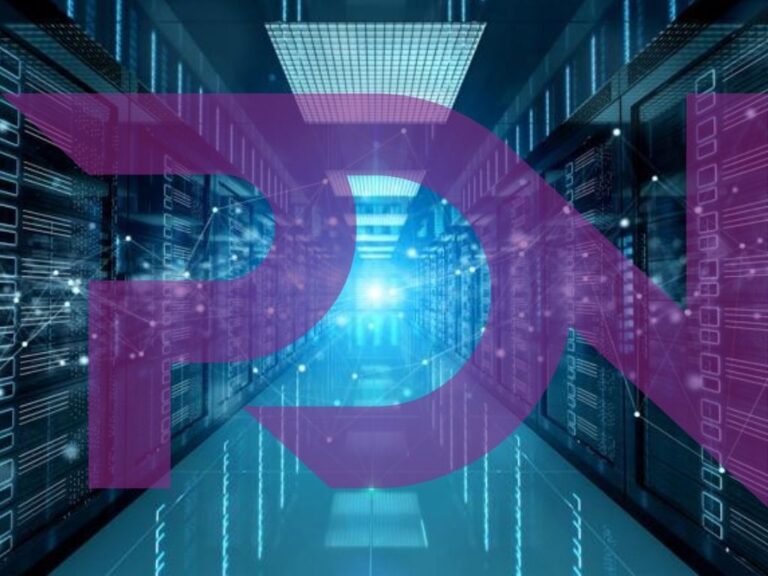We’ve already mentioned the importance of CDNs for websites (Content Delivery Networks); nowadays, the majority of the world’s traffic goes through these services, which enable content to be distributed more efficiently. To a certain extent, CDNs also protect sites, particularly against DDOS attacks, and this is one of their greatest assets. One of the best-known CDNs is Cloudflare, a company that allows anyone with an Internet presence to enjoy faster, more secure sites. But this CDN also has a somewhat shady reputation: more than 80% of the world’s pirated content traffic is known to hide behind a Cloudflare. We wrote about its role in piracy a while ago. How has the situation evolved since then?
After an ambivalent stance on the ultra-right Kiwi farms site in 2022, Cloudflare has repeatedly reiterated its desire not to be an “internet police”. They regularly reiterate that they are not a government, and are therefore not in a position to make decisions about content. They also frequently emphasize that there is a clear distinction between hosts and intermediaries. According to them, since intermediaries have no control over their clients’ content, they have no responsibility for what is published on their clients’ sites, and no legitimacy to moderate them. They could not therefore be accused of encouraging illegal behavior as a result. Yet the majority of governments are increasingly taking the position that intermediaries are precisely the best to put a stop to their customers’ illegal activities. Moreover, the proportionality of the measure is respected: indeed, blocking injunctions are territorial, reflecting the territorial nature of intellectual property rights.
The company cites the case of Austria as an illustration: following a ruling by the Austrian Supreme Court on IP blocking, overblocking of sites was observed. Cloudflare uses this single example – when the same measure has been applied in many countries without any problems – to take a strong stance against this measure. However, when removal at source (which is, in principle, a better and less costly solution) is ineffective, there must be some other way of dealing with resistant sites; that’s where IP blocking comes in, and it’s a long, costly and highly litigious process. It’s obviously a last-resort solution for rights holders, and it’s also the best solution for broadcasting live content: even a willing host will often take a few hours to respond to a request. By that time, the illegally broadcast match or concert will already be long over.
Cloudflare’s position on IP blocking is therefore clearly ideological, and very much in favor of pirates and in support of illegal sites.

If we take the example of Cloudflare and The Pirate Bay, for example, the famous Swedish piracy site, Cloudflare currently provides services to 4 of TPB’s 14 domain
If we were to imagine how a CDN might react, Cloudflare could, for example, refuse to provide services to obviously high-risk sites, or, if they are already among its customers, move them at least temporarily to quarantined spaces. In the Kiwi Farms case, for example, the harassment had gone so far that transactivist video game developer Chloe Sagal ended up committing public suicide, immolating herself in a public park in 2018. Similarly, Clara Sorrenti, also a trans woman, had been forced to flee Canada because of threats to her life received from Kiwi Farms users. In particular, they used the site to exchange personal data about Sorrenti, including her physical address. Cloudflare’s position and their alleged protection of privacy is therefore unacceptable, even if they ended up refusing their services to Kiwi Farms following a report on NBC which highlighted the responsibility of intermediaries in this kind of drama.
Most people, including the victims of harassment themselves, understand Cloudflare’s position in part: indeed, nobody wants to live in a world where private companies decide what should and shouldn’t be online. However, there must be limits, and these limits must be defined by governments: when real, serious threats to people’s lives, for example, intermediaries have a duty to intervene. Even if the harassment or piracy doesn’t disappear with one of these sites, it becomes more difficult for those engaging in such behavior to organize themselves.

We’ll be back in mid-February to continue our theme on Cloudflare and CDNs. In our next article, we’ll be looking at ways of making intermediaries more accountable. In the meantime, if you have a film, series, software or e-book to protect, don’t hesitate to call on our services by contacting one of our account managers; PDN has been a pioneer in cybersecurity and anti-piracy for over ten years, and we’re bound to have a solution to help you. Happy reading and see you soon!
Share this article